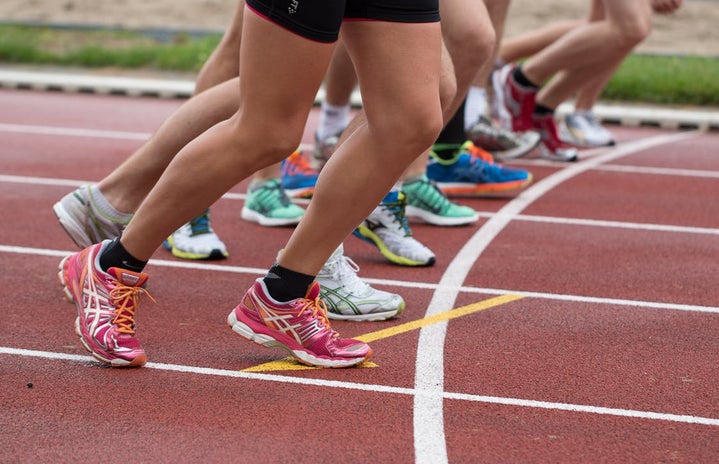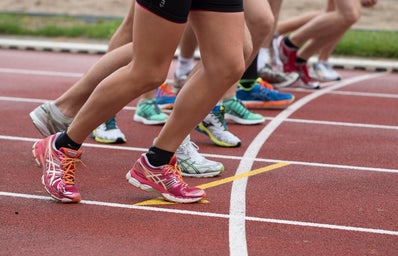Recently Black female athletes have been all over the media as they face covert discrimination
and controversy within the sporting world. This is because of the upcoming, highly anticipated
2021 Olympic and Paralympic Games.
Despite public and medical warnings, the games are to be held in Tokyo this year on 23 July, amidst the COVID-19 pandemic. With billions of Rands at stake, the International Olympic Committee and the Japanese government have enforced various protocols to mitigate the spread of the virus amongst the international competing athletes.
One such rule is the ban on international spectators. While this rule is well-intentioned, it fails to
recognise the position of female athletes who have recently had children and would have to
choose between competing in the games or taking care of their children. It is for this reason that
Serena Williams will not make an appearance in the 2021 Olympics. The American tennis
player expressed that she would not be able to leave her 3-year-old daughter, Olympia, behind,
yet there has still been no word from the Tokyo organisers about any change of procedure. This
would have been Williams’ fifth Olympic competition. US marathon runner, Aliphine Tuliamuk
has petitioned her husband and 4-month-old baby to attend the games but has not received any
official word as to whether this will be permitted. These are just two examples of female athletes
who will either not see the Olympic Games this year or who will be expected to perform with the
odds stacked against them.
At the US Classic, American gymnast, Simone Biles, became the first woman to land a
Yurchenko double pike in vault in competition. The move is very complex and dangerous; hence
few gymnasts attempt to perform it. What was an outstanding moment in gymnastics history
became yet another blow to (let’s face it) a Black female athlete who is at the top of her game.
Not only was Biles penalised, but she was also given a lower score of 6.6 for the move, which is
not a fair score based on its difficulty, with which the International Gymnastics Federation
agreed. However, in order to discourage accidents, they felt it would be best to penalise Biles’
advancement in the field. Simone is now being forced to be ordinary, and to make her opponents feel
better about their abilities. This was a moment where the bar could have been raised, but
instead, the Women’s Technical Committee decided yet again to handicap a Black female athlete with trivial policies. Once again, the goalpost has been moved for an athlete in a league
of her own.
No one knows this type of discrimination more than Caster Semenya. The female South African
Olympic champion will not be participating in the 2021 Olympics on account of her naturally
increased testosterone levels, which classifies her as an intersex woman. Semenya was asked
to take testosterone suppressing drugs to be eligible to compete in the women’s category. This
sparked outrage amongst the public as she has always identified as her birth-assigned gender,
and is in every way, a woman. The problem is that these standards are not expected from male
athletes. Male athletes with similar advantages have never been asked to take hormone-altering
drugs to prove eligibility to compete. For example, Michael Phelps, who holds the title of most
decorated Olympian, has a great genetic advantage over his competitors. Aside from being
diligent and hardworking, Phelps has an abnormally long torso and ‘short’ legs and produces
less than half the amount of lactic acid than his competitors, meaning he doesn’t get tired as
easily. Phelps is known for his genetic advantage and yet, has never been handicapped for it.
Recently, Semenya’s absence from the 800m Olympic trial has trended on social media after
the announcement that Laurel Hubbard, a white transgender weightlifter, would be the first
transgender athlete to compete in the 2021 games. While both athletes should be allowed to
compete in the women’s category, many people have questioned why Semenya, a cisgender
woman, should not be allowed to naturally compete while Hubbard is allowed to on the condition
that she provides proof of her capped testosterone levels.
Another exceptional female athlete, Sha’Carri Richardson, will not make it to the 2021 Olympic
Games. The American sprinter recently tested positive for the use of marijuana while she
competed in the US track and field trials. This news came after she went viral for winning the
100m race in Oregon last month. The 21-year-old’s positive test result invalidated her trial time
and led to a one-month suspension. Richardson claimed that the marijuana was in her system
because she used it to cope with the news of her biological mother’s unexpected passing. This
took place while she was in Oregon for the Olympic trials, where the recreational use of
marijuana is, in fact, legal. She further explained that being under a tremendous amount of
stress and grief, she used the substance to deal with her feelings, stating, “I’m human”.
However, the USADA prohibits the use of marijuana under any circumstance. Their official
position is that it enhances the performance of athletes and can lead to various health concerns,
while only being prohibited during in-competition periods. Richardson only tested positive for THC; the psychoactive element of marijuana that has a calming effect on its users and provides
no athletic advantage.
Unfortunately, with Sha’Carri’s suspension, it seems that the 2021 Tokyo Olympics will exclude
numerous exceptional Black female athletes who would have made history, and that during this
extremely trying time. After the disqualification of Namibian athletes Christine Mboma and
Beatrice Masilingi for their naturally high testosterone levels, and the banning of the Soul Cap
which is designed for swimmers with Black hair, it seems like the rules are almost specifically
designed to disadvantage certain athletes.


